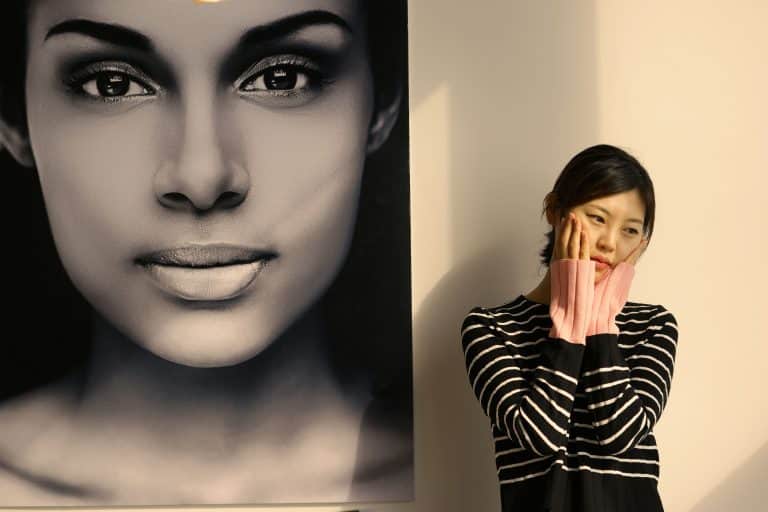The Paradox at the Heart of Being Human
In Elizabeth Lesser’s recently released memoir, Marrow: A Love Story, she recounts how she donated bone marrow to one of her three sisters, who was plagued by a recurring cancer. Before going through with the physical procedure, they underwent a psychological procedure of sorts — sitting with a therapist and talking through some of their long-held disappointments and misunderstandings (both were in their 60s). They wanted to do anything they could to ensure that their cells, believed by some to carry energy, didn’t struggle to mingle because of emotional wounds left unhealed.
Lesser writes,
“I propose that most of our significant relationships can be mended, sweetened, enlarged. And I propose that deepening one relationship can unlock all sorts of goodness in your life — with other people, with your work, with your fate.”
As I was reading the revelatory scenes where Elizabeth and her sister sit down with the therapist, I began to imagine myself sitting down with various loved ones in my own life and going through a similar catharsis. I have often craved such a thing in the midst of an interpersonal haze, the kind that builds up after years of things left unsaid. I don’t have a sister, but I wondered, what would my childhood or college friend say in a room like that?
I long for clarity in my relationships, and yet so often I have shied away from having the hard conversations. When I do have them, often long overdue, I am consistently amazed at how refreshing it is, like our brave words have washed the scrim off of our bond and made it new and light again.
I also crave closure in the relationships that once were and no longer are. I compose emails to the long-lost friend in my head as I lie awake in the dark. What would be worth saying? What would be worth asking? When I wake up in the morning, it never seems worth actually writing and sending.
Part of growing older and wiser, for me, has been about coming to terms with the fact that closure is fairly rare. In mucky times, I’ve often turned to Buddhist nun Pema Chödrön. She writes,
“As human beings, not only do we seek resolution, but we also feel that we deserve resolution. However, not only do we not deserve resolution, we suffer from resolution. We don’t deserve resolution; we deserve something better than that. We deserve our birthright, which is the middle way, an open state of mind that can relax with paradox and ambiguity.”
Relaxing with ambiguity is one of the hardest things I’ve ever attempted to do. It doesn’t suit my personality at all. And yet, I know it’s the most realistic way to approach the beautiful mess that is human relationships.
This moment in life has taught me something, if not about ambiguity, at least about letting things go. When my partner and I rub one another the wrong way, which is pretty easy to do in the midst of two big professional lives and two kids under the age of three, we rarely have time or energy to dwell on the friction; we often move on by necessity and I think it’s sometimes healthier than the rehashing we might have done in our former, less chaotic lives. Sometimes it’s better not to study every little scar created by the inevitable crashes of intimacy.
Motherhood has made me less precious and fragile, too. I don’t have the bandwith to look back very often. The next morning, when the lunch needs to be packed and the milk needs to be pumped, it always barreling down on me. Any adult slight I weather is diminutive in comparison to the largesse of my toddler’s rage-inducing antics.
So how, as Lesser puts it, do you know when the mending will unlock goodness? And how do you know when something is better left open and ambiguous?
There is no simple answer, of course. I would guess part of it is dependent on how high the stakes are. For Lesser and her sister, they were life and death.
Then again, one could argue that the stakes are always life and death at some level. Just as closure isn’t promised, tomorrow isn’t either. What are you willing to risk not saying if it would be your last chance to do so? Would it unlock goodness or prove a juvenile attempt to force a happy ending?
There wasn’t a happy ending for Lesser, technically speaking. Her sister died anyway, despite their Herculean efforts, both emotional and physical. Then again, Lesser unlocked the goodness of a whole new kind of relationship with her dear sister and a whole new understanding of her own capacity for love and grief. All before it was too late.
Lesser, like Chödrön, gets paradox. She writes:
“This is the paradox at the heart of being human… if we wait for the perfect time, the perfect person, the perfected self, we’ll stay frozen in an idea of love. But if we fearlessly engage with the life spread out before us, we will be rewarded with a heart that can hold it all — happiness and messiness, clarity and confusion, love and loss.”

